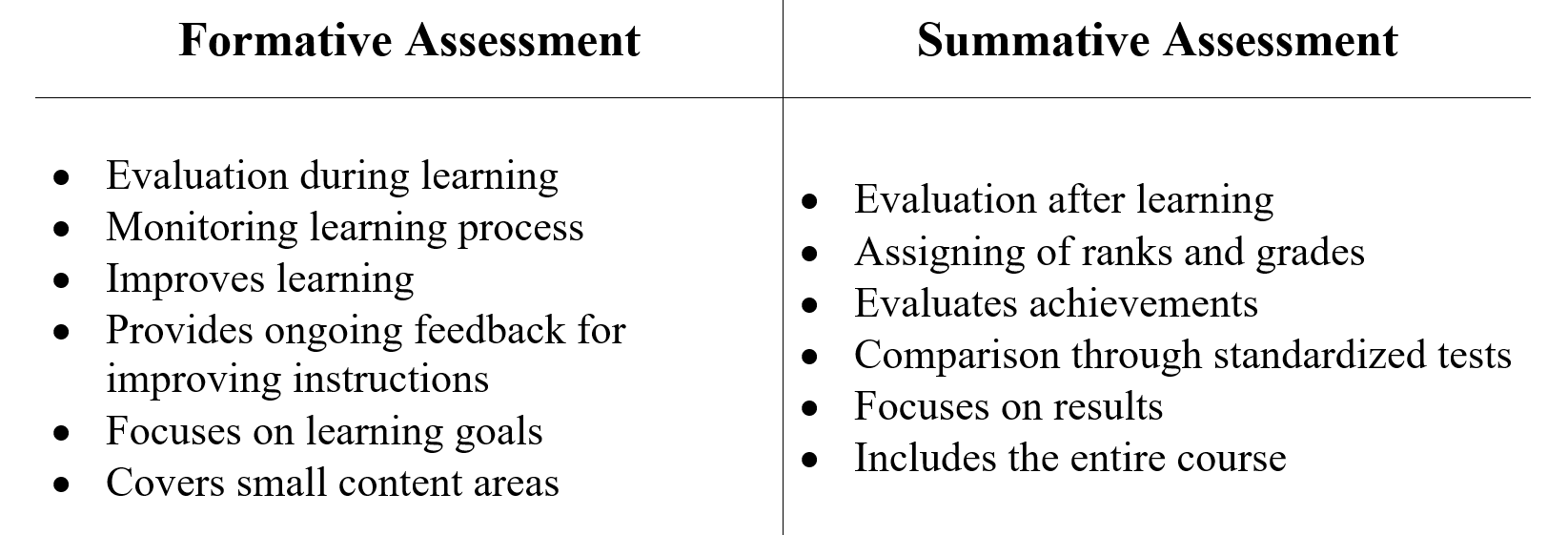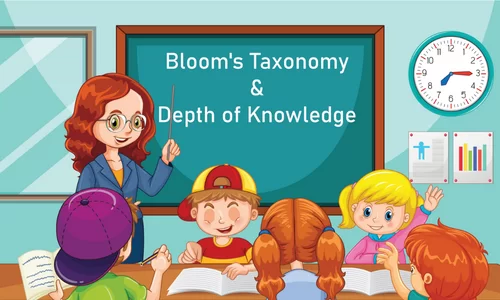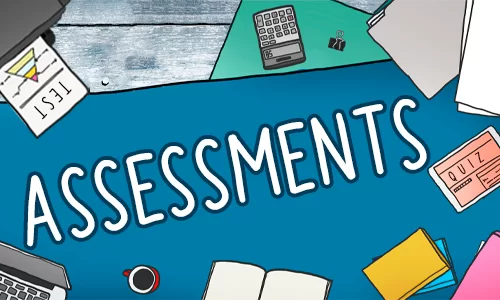Assessments are an evaluation technique to analyze the extent of learning and identify the areas of strengths and weaknesses. The teaching-learning process aims to impart knowledge and skills that help in the formation of attitudes, behavior, and values. However, learning is incomplete without assessment. Formative and Summative Assessments are two of the most common methods of evaluation. Despite the difference in structure and objective of formative and summative assessments, both of them together help in building an effective assessment strategy. The following article highlights the differences between the two types of assessment and their objectives.
What is Formative Assessment?
A formative assessment serves as a practice of the concepts learned. Moreover, it is specifically designed to monitor student learning and provide feedback to improve teaching. This means that formative assessment helps the students to identify their strengths, weaknesses, and improvement areas. Also, it helps the teachers to identify the learning issues that the students face and devise methods to resolve them.
However, formative assessments are not always about grading. The primary objective of formative assessments is to enhance the understanding and competencies of the students. Also, it gives a fair idea about the student’s needs and progress while they engage in activities like quizzes, conversations, and more.
What is Summative Assessment?
In contrast to formative assessments, summative assessment is a graded assessment that generally occurs at the end of a course. It is a periodical process that evaluates the overall learning, knowledge, proficiency, and success of the students along with the effectiveness of a course/program.
Moreover, unlike the practice-oriented formative assessment, summative assessment evaluates the students on their performance in standardized tests. The test scores, percentages, and grades determine the student ranks and indicate the quality of the curriculum. Thus, this type of assessment is result-oriented.
Formative vs Summative Assessments
Both formative and summative assessments are related yet different. As modes of evaluation, both tend to evaluate the areas of learning. A side-by-side comparison of both makes the differences obvious.
Examples of Formative and Summative Assessments
Formative Assessment
A formative assessment is often conducted in the form of various fun and interactive activities. Such activities engage students and induce learning. For instance:
- Classroom Discussions
- Group Activities
- Homework Assignments
- Polls, Surveys, and Quizzes
- Reflection Writing Assignment
- Class Presentations
- Educational Games
Summative Assessment
A summative assessment takes place at the end of a unit/course. It measures the students’ learning and determines their rank, grades, and percentages. Thus, it can be conducted in the following forms:
- Standardized Tests
- Final Reports and Projects
- End of Unit Tests
- Achievement Tests
- Final Presentations
- Mid-Term Examinations
- End-Term Examinations
Therefore, Formative and Summative assessments play an important role in the assessment of learning. While formative assessments encourage communication and cooperation among peers, summative assessments serve the purpose of evaluation. This implies that formative assessment is qualitative, whereas summative assessment may be considered quantitative in nature.
Moreover, summative assessment primarily takes into account the percentages, marks, and grades that often overshadow the qualitative aspects of learning and the skills acquired by the student. Therefore, the right balance of assessment methods must be employed for effective conduct and evaluation of learning.
Read more about assessments in our previous blog.
Research article: AES Education
Images: Shutterstock
For more information, visit Evelyn Learning blog.
Create. Engage. Inspire

















